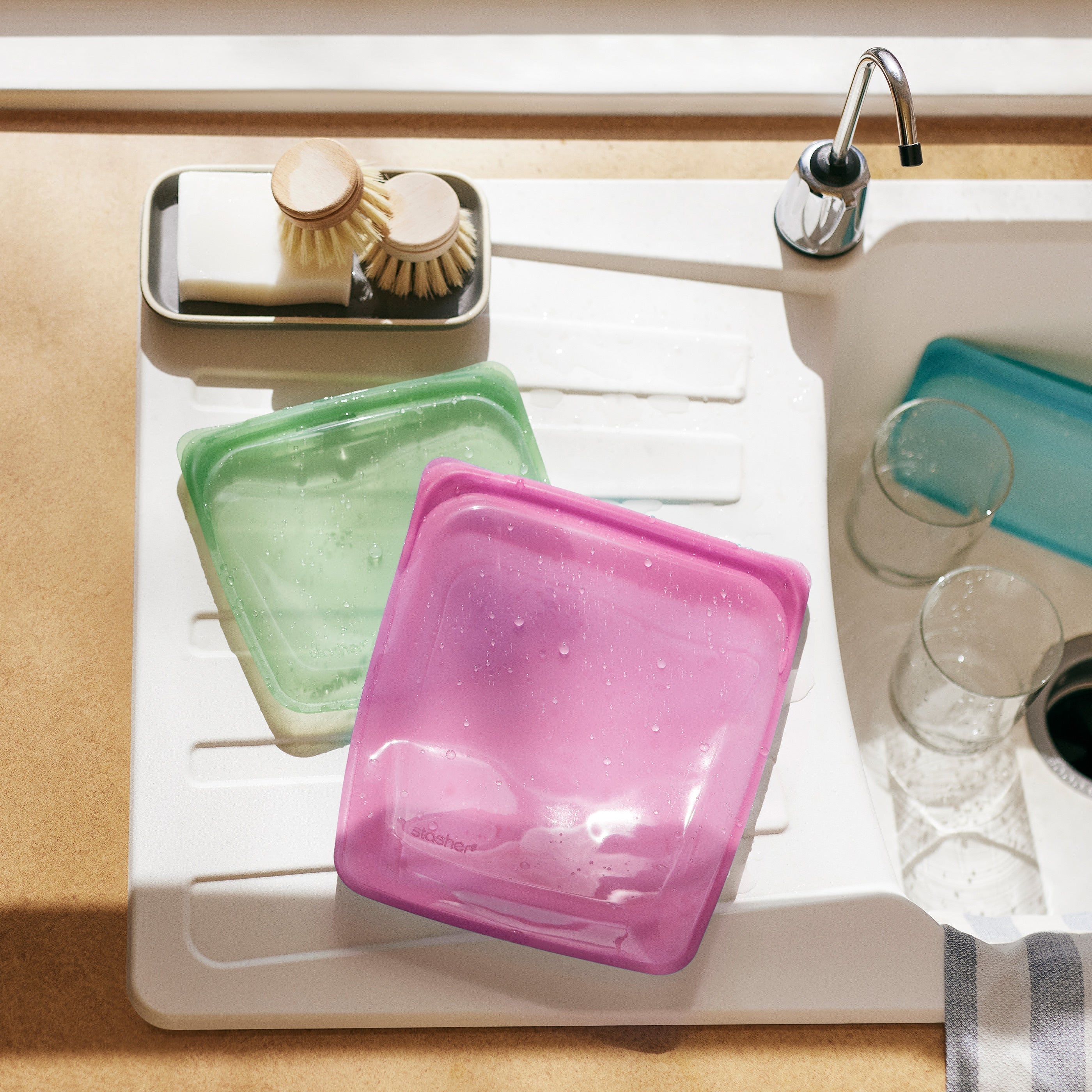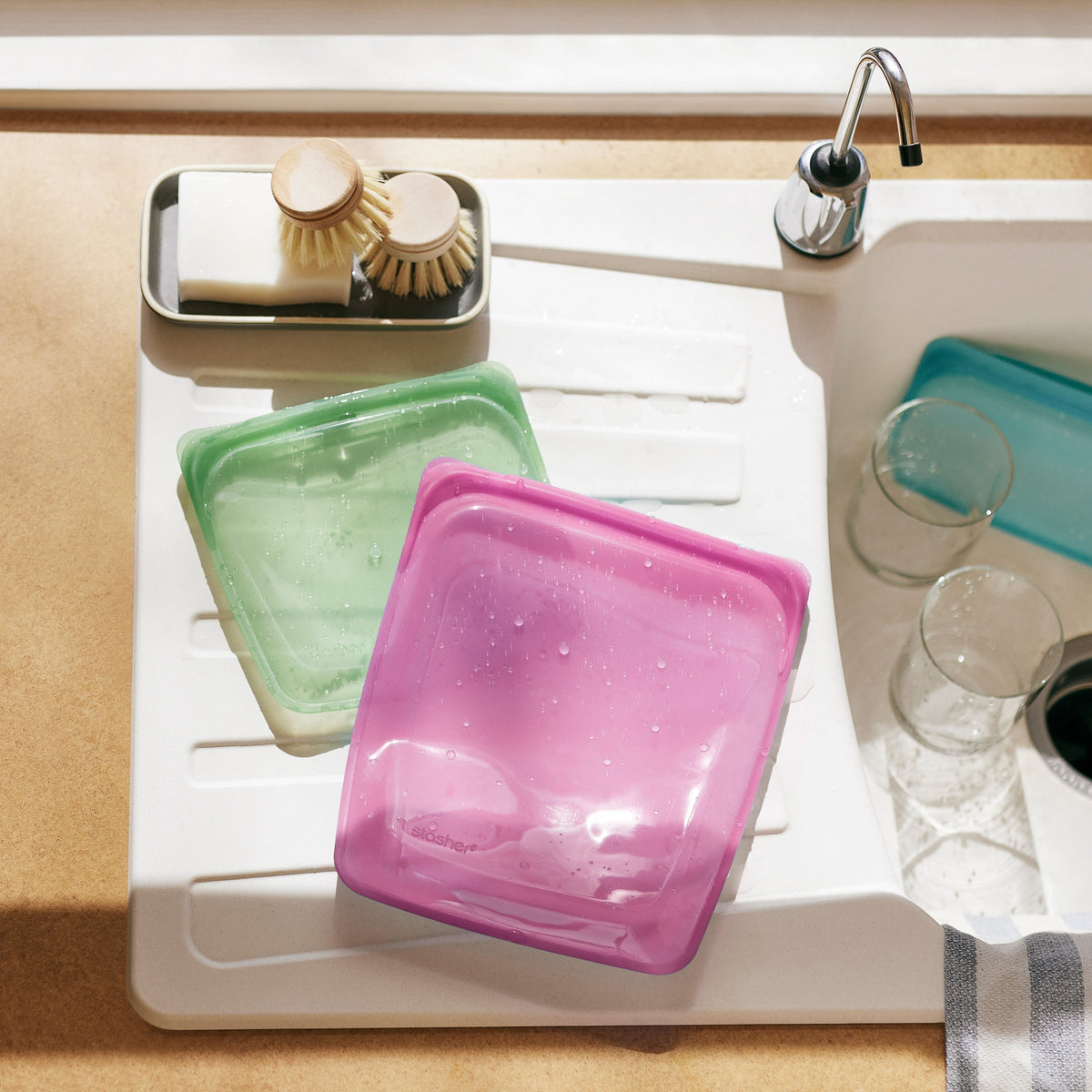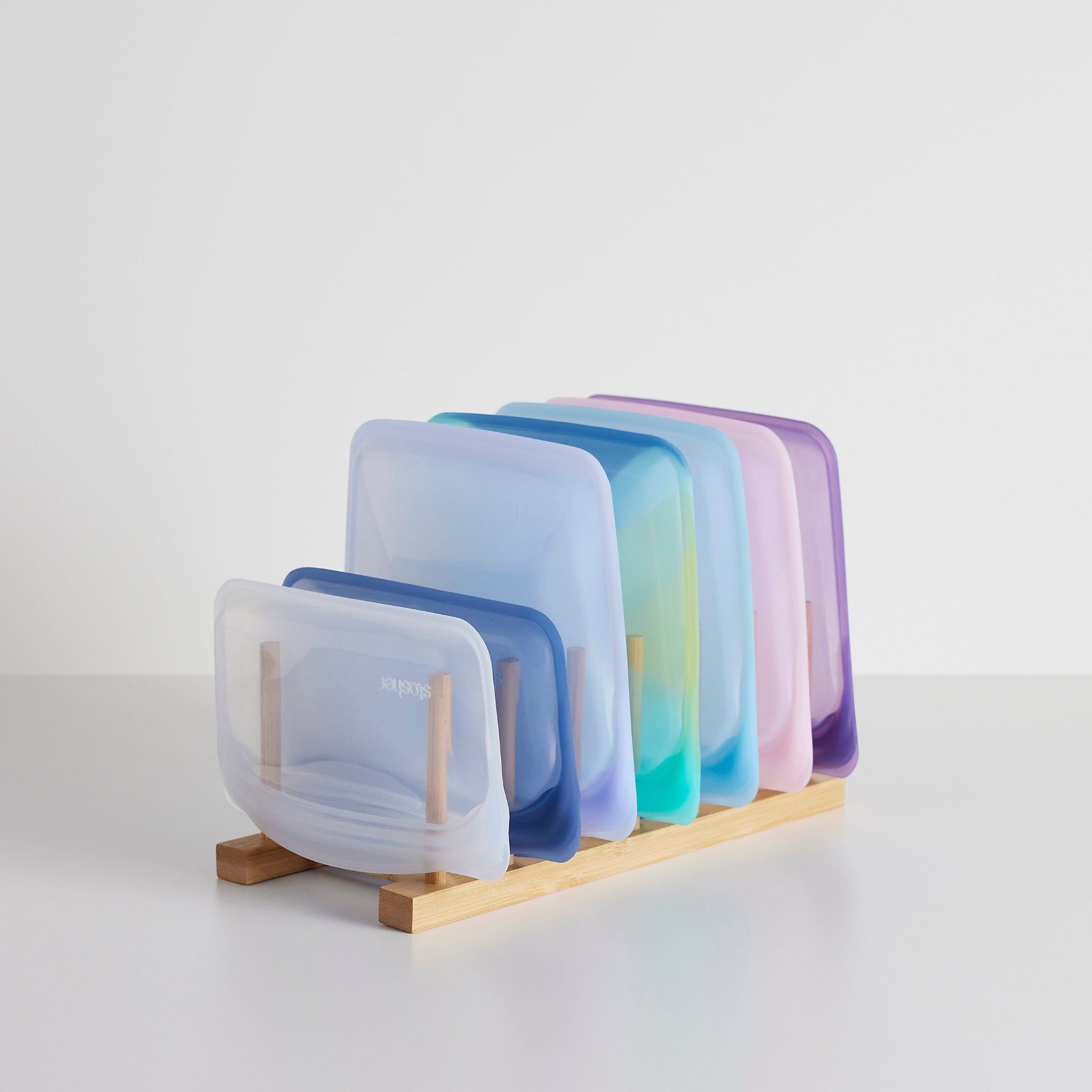Stasher bags are a fantastic, reusable alternative to plastic bags, but keeping them fresh and clean is essential for continued use. If you’ve noticed lingering odors or stubborn residue in your stasher bag, you’re not alone. A quick soak and scrub can often resolve the issue, but a deep clean is sometimes required. This guide will walk you through everything you need to know to effectively clean your stasher bags, from daily rinses to tackling tough stains, ensuring they remain hygienic and ready for your next use.
Stasher bags are incredibly versatile, but their silicone material can hold onto smells and food particles if not properly maintained. While a simple wash with soap and water usually suffices, this guide will cover a range of cleaning methods, including addressing stubborn odors, removing stains, and even tackling discoloration. By the end, you’ll have a sparkling clean stasher bag and the knowledge to keep it that way.
Common Causes of Stasher Bag Odors & Residue
- Food Particles: The most common culprit. Tiny bits of food can get lodged in corners and seams.
- Strong Smells: Spices, garlic, onions, and certain sauces are notorious for leaving lingering odors.
- Oil-Based Residue: Oils and fats can create a sticky film that’s harder to remove with soap alone.
- Colored Foods: Beets, turmeric, and tomato-based sauces can stain the silicone.
- Improper Drying: Trapped moisture can lead to bacterial growth and odor.
How to Clean Stasher Bags: Multiple Methods
Method 1: Daily Rinse & Soap Wash
This is your go-to method for everyday cleaning after each use.
Diagnosing the Issue
This method works best for bags used for non-staining, lightly scented foods. If you’ve stored something strongly scented or oily, move to a different method.
Fix Steps
- Empty the Bag: Remove all food particles.
- Rinse Thoroughly: Rinse the bag inside and out with warm water.
- Wash with Soap: Add a drop or two of mild dish soap.
- Scrub Gently: Use a soft sponge or cloth to scrub the entire bag, paying attention to corners and seams. Avoid abrasive scrubbers.
- Rinse Again: Rinse thoroughly until all soap residue is gone.
- Dry Completely: Air dry upside down or use a clean towel.
Testing
Ensure no soap residue remains by smelling the bag. If it still smells like soap, rinse again.
Method 2: Baking Soda Soak for Odor Removal
Baking soda is a natural odor absorber and excellent for tackling stubborn smells.
Diagnosing the Issue
This is ideal for bags that have absorbed strong odors like garlic, onions, or spices.
Fix Steps
- Prepare the Soak: Fill the stasher bag with warm water and 1-2 tablespoons of baking soda.
- Soak: Seal the bag and gently shake to dissolve the baking soda. Let it soak for at least 30 minutes, or overnight for strong odors.
- Wash & Rinse: After soaking, wash the bag with mild dish soap and rinse thoroughly.
- Dry Completely: Air dry upside down or use a clean towel.
Testing
Smell the bag to ensure the odor is gone. Repeat the soak if necessary.
Method 3: Vinegar Rinse for Tough Residue & Discoloration

Vinegar is a natural disinfectant and can help break down stubborn residue and discoloration.
Diagnosing the Issue
Use this method for oily residue, discoloration, or when baking soda isn’t enough. Do not use vinegar on colored stasher bags, as it can further dull the color.
Fix Steps
- Prepare the Rinse: Fill the stasher bag with equal parts warm water and white vinegar.
- Soak: Seal the bag and let it soak for 30-60 minutes.
- Wash & Rinse: Wash the bag with mild dish soap and rinse thoroughly.
- Dry Completely: Air dry upside down or use a clean towel.
Testing
Inspect the bag for any remaining residue or discoloration. Repeat the vinegar soak if necessary.
Method 4: Deep Clean with Stasher Cleaning Tablets (or Denture Tablets)

Stasher offers their own cleaning tablets, but denture cleaning tablets work similarly.
Diagnosing the Issue
This is a convenient option for a thorough, hands-off clean.
Fix Steps
- Fill with Water: Fill the stasher bag with warm water.
- Add Tablet: Drop in one Stasher cleaning tablet (or one denture tablet).
- Soak: Seal the bag and let it soak for at least 15 minutes, or up to several hours.
- Rinse Thoroughly: Rinse the bag thoroughly with warm water.
- Dry Completely: Air dry upside down or use a clean towel.
Testing
Smell the bag to ensure it’s clean and fresh.
Prevention Tips and Maintenance Advice

- Rinse Immediately: After use, rinse the bag as soon as possible to prevent food from drying and sticking.
- Air Dry Thoroughly: Always air dry the bag completely, especially the corners and seams.
- Store Properly: Store stasher bags open or unsealed to allow air circulation.
- Avoid Abrasive Cleaners: Do not use harsh chemicals, abrasive scrubbers, or bleach, as they can damage the silicone.
- Avoid Sharp Objects: Avoid using sharp objects inside the bag, as they can puncture the silicone.
Pro Tips for Stasher Bag Care
- For Sticky Residue: Add a pinch of salt to the soapy water when scrubbing to act as a gentle abrasive.
- To Prevent Staining: Wash colored food residue immediately.
- Sunlight Disinfection: Occasionally, place clean stasher bags in direct sunlight for a natural disinfecting boost.
- Dishwasher Safe (Top Rack): While hand washing is recommended, stasher bags are generally dishwasher safe on the top rack. (Check manufacturer instructions.)
- Don’t Overfill: Overfilling can strain the seal and make cleaning more difficult.
- Consider Dedicated Bags: Have separate bags for different food types (e.g., one for meats, one for fruits/vegetables) to minimize odor transfer.
Professional Help Section
While usually unnecessary, if a stasher bag is severely stained or damaged, and you’ve tried all cleaning methods, consider contacting Stasher customer support for guidance. Replacement bags are readily available for purchase.
FAQ Section
Q: Can I put stasher bags in the microwave?
A: Yes, stasher bags are microwave-safe. However, be careful when removing them as they can get hot.
Q: Can I freeze food in stasher bags?
A: Absolutely! Stasher bags are freezer-safe and a great alternative to plastic freezer bags.
Q: Are stasher bags stain-proof?
A: While silicone is relatively stain-resistant, some highly pigmented foods can leave a slight discoloration. Vinegar rinses can help minimize staining.
Q: How long do stasher bags last?
A: With proper care, stasher bags can last for years. The silicone is durable and reusable.
Q: My bag still smells after cleaning. What should I do?
A: Repeat the baking soda soak or try the vinegar rinse. For very stubborn odors, let the bag soak overnight.
Alternative Solutions Section
If the above methods don’t fully eliminate odors or stains, consider using a specialized silicone cleaner designed for kitchenware. Alternatively, you could try a paste made from baking soda and water, applied directly to the stained area and left to sit for a few hours before rinsing.
| Solution | Pros | Cons | Best For |
|---|---|---|---|
| Baking Soda Soak | Natural, readily available, effective odor removal | May require multiple soaks for strong odors | General odor removal |
| Vinegar Rinse | Breaks down residue, disinfects | Can dull color, strong smell | Oily residue, discoloration (clear bags only) |
| Silicone Cleaner | Specifically designed for silicone | May be more expensive | Stubborn stains, deep cleaning |
Keep Your Stasher Bags Running Smoothly
By following these cleaning methods and prevention tips, you can keep your stasher bags fresh, hygienic, and ready for years of use. Don’t let lingering odors or stubborn stains discourage you – a little effort goes a long way in maintaining these eco-friendly alternatives.
Tried any of these methods? Share your stasher bag cleaning tips and experiences in the comments below!




